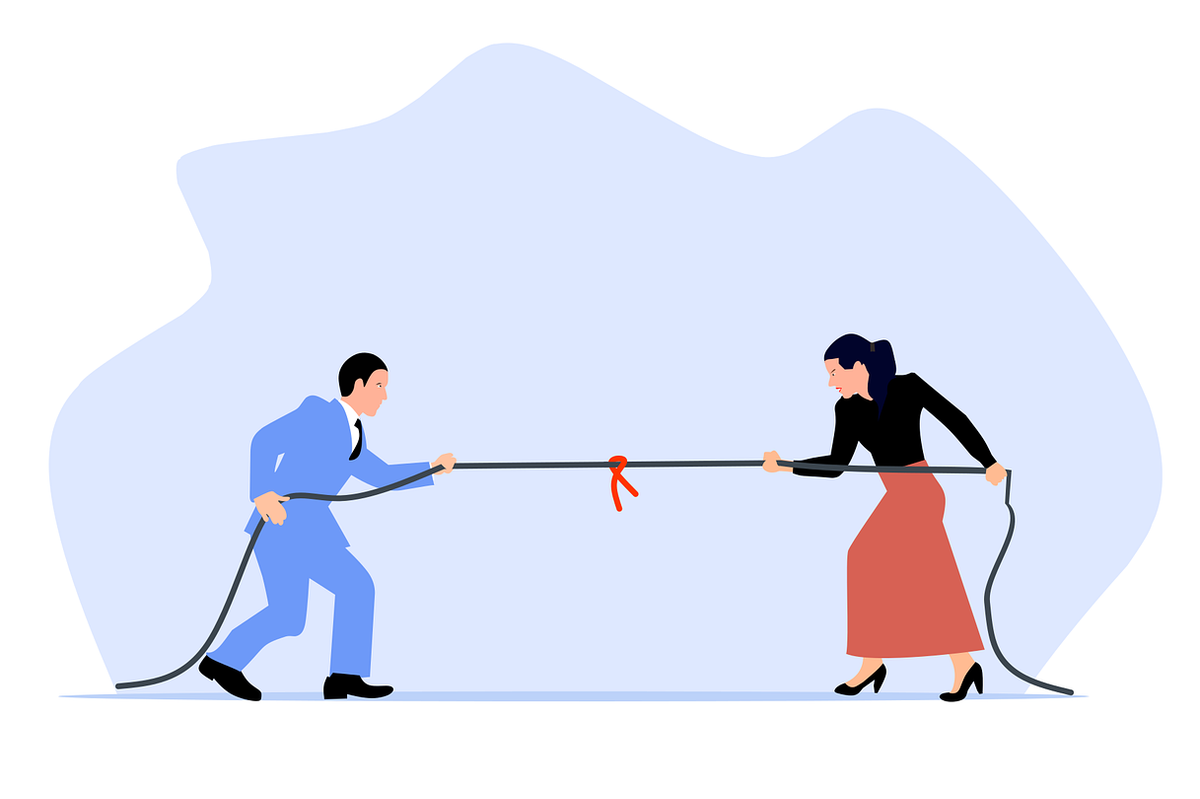How a 'blind' audition at an orchestra still had a secret bias towards men
The funny thing about bias is, often times we don't even realize it's creeping into our minds, coloring everything we see.

A trailer for 'Tar," starring Cate Blanchett
In her TED talk, "What does my headscarf mean to you?" Yassmin Abdel-Magied told this story:
In 1952, the Boston Symphony was looking to diversify it's male-dominated orchestra, so it conducted an experiment with a series of blind auditions.
For the auditions, the musicians would be playing behind a screen, in an effort to remove all chance of bias and allow for a merit based selection only - a selection that would hopefully increase the number of women in the orchestra.
To their surprise, their initial audition results still skewed male.
Then they asked the musicians to take off their shoes. The reason? The sound of the women's heels as they entered the audition unknowingly influenced the adjudicators.
Once the musicians removed their shoes, almost 50% of the women made it past the first audition. The moral of the story? Overcoming unconscious bias isn't as easy as one might think.

Gender bias can seem like a tug-o-war as we seek equality.
Image via Pixabay.
That's partly why Yassmin is somewhat forgiving when it comes to the assumptions that come along with her headscarf.
Yassmin wears a hijab, but that's only part of who she is.
"Someone who looks like me walks past you in the street. ... Do you look me up and down, wondering how hot I must get or if my husband has forced me to wear this outfit? ... I can walk down the street in the exact same outfit and what the world expects of me and the way I'm treated depends on the arrangement of this piece of cloth."— Yassmin Abdel-Magied, "What does my headscarf mean to you?"
But Yassmin is so much more than just a Muslim woman in a headscarf. Like everyone else, her identity is complex and special to her. She has worked as a race car engineer, trained as a boxer, and, these days, works as a mechanical engineer on a giant oil rig. Oddly enough, the very things that make Yassmin unique are often seen as a contradiction because of her religion. And every single day she is dealing with the unconscious bias of those who see her and her scarf, making instant, quiet, almost reflexive judgements about her. Because that's how unconscious bias works.
Bias is a natural response to living in a society that normalizes certain types of people and behaviors while it "others" anything that's different.
Even when we try our hardest to see everyone as equal, our mind is influenced by the way people and things are presented in the world around us. As Yassmin explains, unconscious bias is ingrained in all of us, even when we have the best of intentions.
"Unconscious bias is not the same as conscious discrimination. I'm not saying that in all of you, there's a secret sexist or racist or ageist lurking within, waiting to get out.That's not what I'm saying. We all have our biases. They're the filters through which we see the world around us. ... Bias can be about race, it can be about gender. It can also be about class, education, disability. The fact is, we all have biases against what's different,what's different to our social norms." — Yassmin Abdel-Magied, "What does my headscarf mean to you?"
A link to watch Yassmin Abdel-Magied and her Ted Talk below:
If bias happens unconsciously, how in the world do we correct it?
Unfortunately, there isn't a magic wand that can wipe away any trace of bias you might have. But just knowing that there are biases present in all of us is an important first step to overcoming them. Also, just diversifying your community and interacting with people who are different from you is another way to fight off those silent prejudices.
Want to dig deeper? You're in luck!
Psychologists from Harvard University, the University of Washington, and the University of Virginia teamed up to create a series of online tests that measure unconscious bias. There are tests for everything — age, gender, race, religion, skin tone, and even weapons! It's pretty cool. Visit the "Project Implicit" websiteto test your unconscious bias and find the areas of your perspective that need a little extra TLC.
This article originally appeared on 06.22.15
- In men, it’s Parkinson’s. In women, it’s hysteria. - Upworthy ›
- Look at how differently a Mississippi newspaper covered stories about Black and White suspects - Upworthy ›
- College student annoyed with classmate has self-check moment - Upworthy ›
- Muslim girl forced to remove hijab by Air Canada employee - Upworthy ›



 Student smiling in a classroom, working on a laptop.
Student smiling in a classroom, working on a laptop. Students focused and ready to learn in the classroom.
Students focused and ready to learn in the classroom.
 Matthew McConaughey and Shawn Andrews in Dazed and Confused (1993)Facebook
Matthew McConaughey and Shawn Andrews in Dazed and Confused (1993)Facebook 

